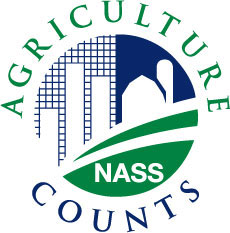
Although the week began with dry weather, by Friday severe storm systems brought cooler temperatures and rain which allowed Iowa farmers 4.2 days suitable for fieldwork during the week ending April 28, 2024, according to the USDA, National Agricultural Statistics Service. The storms also brought tornadoes and hail to areas of the state. corn, soybean, and oat planting advanced early in the week, but came to a halt for most as storms arrived.
Topsoil moisture condition rated 5 percent very short, 17 percent short, 68 percent adequate and 10 percent surplus. Recent rains led to just 22 percent short to very short for the state’s topsoil, compared to 37 percent as of April 21, 2024. In west central Iowa topsoil moisture condition rated 6 percent very short, 22 percent short, 63 percent adequate and 9 percent surplus.
Subsoil moisture condition statewide rated 14 percent very short, 27 percent short, 53 percent adequate and 6 percent surplus. Ratings in west central Iowa were17 percent very short, 34 percent short, 44 percent adequate and 5 percent surplus.
Corn planted reached 39 percent complete, four days ahead of last year and three days ahead of the 5-year average Two percent of the expected corn crop has emerged. Twenty-five percent of the expected soybean crop has been planted, four days ahead of last year and five days ahead of the average. Ninety percent of the expected oat crop has been planted, five days ahead of last year and nine days ahead of the 5-year average. Fifty-three percent of the oat crop has emerged, eight days ahead of last year.
Pastures and hay ground continued to green up, but warmer temperatures would aid in growth. Reports were received of cattle being turned out onto pasture.
Weather summary provided by Justin Glisan, Ph.D., state climatologist, Iowa Department of Agriculture and Land Stewardship – Several waves of severe thunderstorms spawned multiple strong tornadoes, causing significant damage across portions of western and central Iowa late in the reporting period. This active storm track also brought much needed rainfall across the drought region, along with reports of hail and high winds. Unseasonably warm conditions persisted with positive departures of up to four degrees over southern Iowa; the statewide average temperature was 53.9 degrees, 2.0 degrees warmer than normal.
Clear skies and westerly winds persisted through Sunday afternoon, April 21, as daytime temperatures held in the upper 50s and low 60s. With high pressure dominating the weather pattern, southerly winds increased overnight as Monday morning temperatures dropped into the upper 30s to low 40s. Afternoon temperatures rose into the upper 60s and low 70s as a cold front brought spotty showers across the state; the low-level atmosphere was particularly dry, evaporating most of the rain before hitting the surface.
Light rain eventually registered across several stations towards daybreak on Tuesday, April 23, with College Springs (Page County) reporting 0.11 inch; most stations observed 0.01 inch or less. Extreme southeastern Iowa picked up additional rainfall from lingering showers with Keokuk Lock and Dam (Lee County) reporting 0.25 inch. Winds shifted to the northwest behind the front with daytime highs ranging from the low 50s northwest to low 70s southeast. Starry skies were observed into Wednesday with near-freezing temperatures over northern Iowa and low 40s for much of southern Iowa. Pleasant conditions greeted Iowans through the day with temperatures in the 60s under light, variable winds and sunny skies.
Winds shifted southeasterly after midnight, signaling an approaching low-pressure center and a shift to an active weather pattern. Thursday, April 25, started warm with temperatures in the low to mid 50s across much of Iowa. Clearing skies helped boost afternoon temperatures into the upper 60s in northwestern Iowa while mid 50s were observed south.
Showers and thunderstorms pushed into western Iowa during the early morning hours on Friday ahead of a warm front draped over southern Iowa. Rainfall spread over much of the state into the afternoon with overcast skies holding highs in the low to mid 50s; upper 60s and low 70s were reported in southwestern Iowa where clearing skies and higher dewpoints were amping up atmospheric instability.
Intense supercells that blasted though eastern Nebraska crossed into Iowa, spawning several long-track, multi-vortex tornadoes. As the tornadoes plowed northeast, several towns experienced substantial damage along with heavy rain. Minden (Pottawattamie County) took a direct hit and experienced extensive damage to more than 75 homes. These storms eventually coalesced into a line that produced additional tornadoes, many rated EF-2, in central Iowa causing additional damage across Union, Clarke, Madison and Polk Counties. The system lost energy in eastern Iowa and cleared the state by daybreak on Saturday. Rain totals were highest across three swaths of western, central and southeastern Iowa, with nearly 80 stations reporting an inch; 50 percent of Iowa’s rain gauges had at least 0.46 inch; 1.83 inches was observed in Madrid (Polk County), while Missouri Valley (Harrison County) registered 1.94 inches.
Saturday was another active weather day with severe thunderstorms firing over southeast Iowa through the afternoon and evening hours; there were several severe hail and high wind reports along with heavy rain. Most stations received an additional 0.25-0.50 inch with locations along the Iowa-Missouri border receiving more than an inch; two stations in Lee County, Augusta and Donnellson, observed 2.03 and 2.15 inch-totals, respectively. Showers lingered in the southeast corner into Sunday, April 28, with lows in the 50s northwest to low 60s southeast.
Weekly precipitation totals ranged from 0.10 inch at Guttenberg Lock and Dam (Clayton County) to 4.72 inches in Little Sioux (Harrison County). The statewide weekly average precipitation was 1.32 inches, while the normal is 0.91 inch. Iowa City (Johnson County) reported the week’s high temperature of 84 degrees on April 27, 18 degrees warmer than average. Several northern stations reported the week’s low temperature of 25 degrees on April 22, on average 12 degrees cooler than normal. Four-inch soil temperatures ranged from the low 50s northwest to low 60s southeast as of Sunday.
